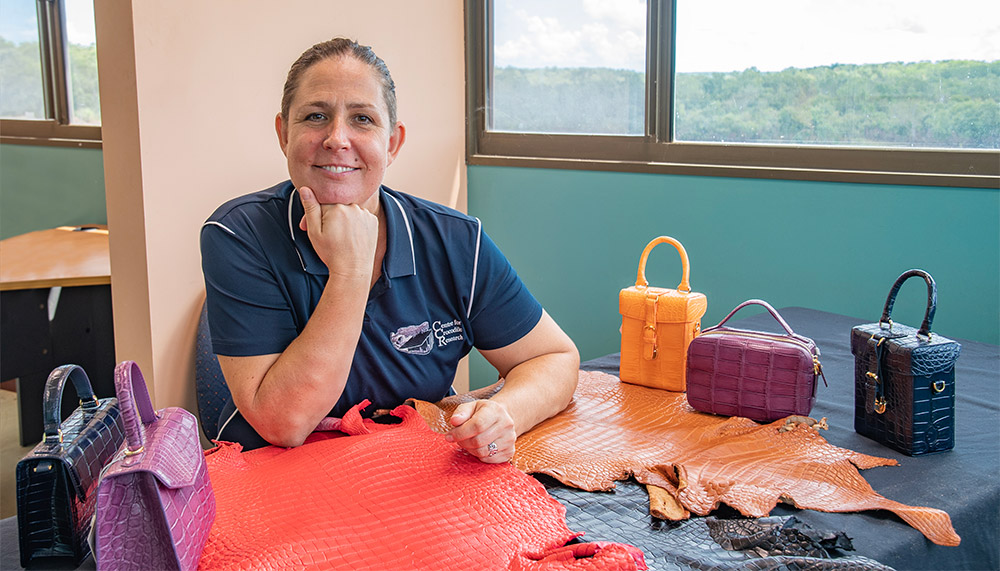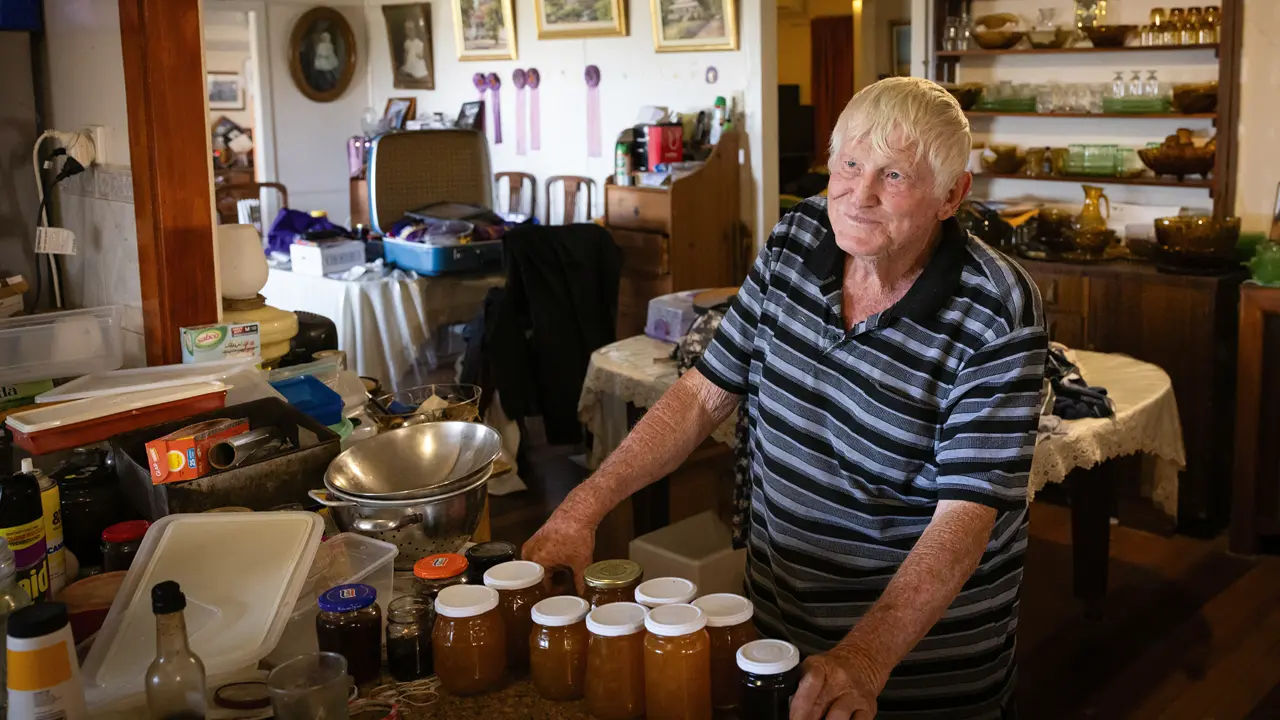Dr Sally Isberg is a world expert and consultant in producing high-quality crocodile skins more sustainably.
Story + Photos Kerry Sharp
Guinea pigs and crocodiles are a world apart in the species pecking order but both have contributed to Dr Sally Isberg’s fascinating journey from curious child scientist to world-respected crocodile geneticist and researcher. Sally’s private consultancy, Centre for Crocodile Research, is internationally recognised for building relationships with government and university institutions to produce crocodile skins more ethically, economically and sustainably. In 2015, she became the NT Rural Woman of the Year as a result of her work.
Raised at semi-rural Kenthurst, near Sydney, Sally developed a love of bush life from spending school holidays at her grandparents’ sheep and sorghum farm at Coonabarabran, NSW. Her love of science came from her mum, who finalised her own science degree at 65 after stalling uni studies to raise kids in the 1970s. Young Sally got hooked on science after crossbreeding multi-coloured guinea pigs from the high school where her mum was a lab technician.
“I originally wanted to be a vet, but did agriculture as a year 12 elective and as part of that, wrote an essay on crocodile meat production because the topic popped up as one we could choose.” She later studied agricultural science at Sydney University and in 1997 encountered her first crocodiles face to face when she did work experience at Janamba Crocodile Farm outside Darwin. Farm manager Stuart Barker (coincidentally, now her brother-in-law) mentored the keen young Sydneysider as she fed crocs, cleaned pens, incubated and hatched eggs, and recorded data.
In her third year at university, Sally analysed 12 months of Janamba’s growth data, identifying genetic differences in crocodiles, and included this work in her honours thesis and a crocodile genetics improvement program she developed during her PhD studies. She says working at Janamba while completing her doctorate taught her much about farm operating systems, crocodile behaviour and the constraints of skin production. “It also instilled a more intelligent approach to writing my thesis, which I wanted to be practical and industry-friendly, not some academic paper sitting on a shelf.”
In 2005, Sally became Darwin Crocodile Farm’s chief
This story excerpt is from Issue #149
Outback Magazine: June/July 2023










